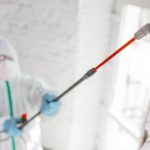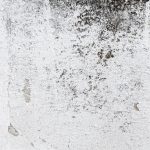
Mold toxicity, often referred to as mold poisoning or mycotoxicosis, occurs when individuals are exposed to toxic mold spores over an extended period. This exposure can lead to a range of health symptoms, which can vary in severity depending on the individual’s sensitivity and the extent of mold presence.
Common Symptoms of Mold Toxicity:
- Respiratory Issues: Chronic coughing, sneezing, and shortness of breath are common signs. Some individuals may also experience wheezing or asthma-like symptoms, especially in homes with high humidity or water damage.
- Allergic Reactions: Mold exposure can trigger allergy-like symptoms, such as watery or itchy eyes, runny nose, and skin rashes. Those with pre-existing allergies or asthma may notice their symptoms worsening.
- Chronic Fatigue and Weakness: Mold exposure can cause a persistent feeling of tiredness and weakness, which may not go away with rest. This is often attributed to the body’s immune response to mold toxins.
- Neurological Symptoms: Prolonged exposure to toxic mold can lead to headaches, difficulty concentrating, memory problems, and mood changes, such as irritability, anxiety, or depression.
- Sinus Congestion and Infections: Mold spores can irritate the nasal passages, leading to congestion, sinus infections, or chronic sinusitis, especially in mold-prone areas like bathrooms, basements, or attics.
- Eye and Skin Irritation: Contact with mold spores can lead to redness, itching, and irritation of the eyes and skin.
Who Is Most at Risk?
Certain individuals are more vulnerable to mold toxicity, including:
- People with weakened immune systems.
- Individuals with chronic respiratory conditions like asthma or allergies.
- The elderly, young children, and pregnant women.
In humid environments like Naples, Fort Myers, and Cape Coral, where mold can grow rapidly, it’s important to be vigilant about preventing and addressing mold growth to avoid these health issues.
Preventing Mold Toxicity
The best way to avoid mold toxicity is to prevent mold growth in your home. Regularly inspecting for leaks, reducing indoor humidity, and ensuring proper ventilation can help reduce the risk. If mold is detected, it’s essential to address it quickly to prevent health complications.
Professional Help for Mold Issues
If you’re experiencing any symptoms of mold toxicity or suspect mold in your home, it’s important to get a professional mold inspection. At QCI Online, we provide expert mold removal, air quality testing, and remediation services across Southwest Florida, including Naples, Fort Myers, Cape Coral, and Bonita Springs.
For more information, visit QCI Online or contact us to schedule a mold inspection. We’re dedicated to keeping your home safe and mold-free!






